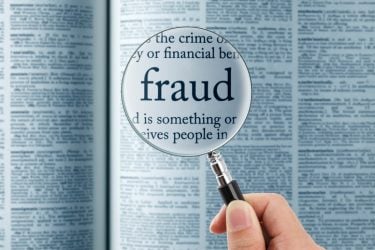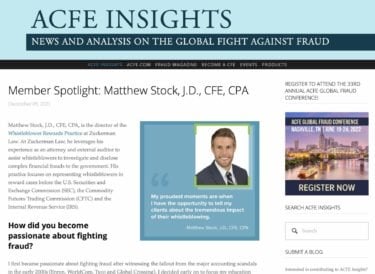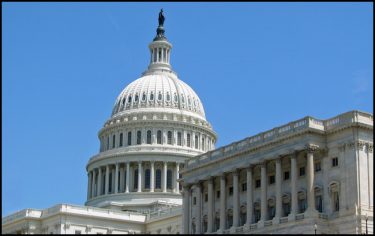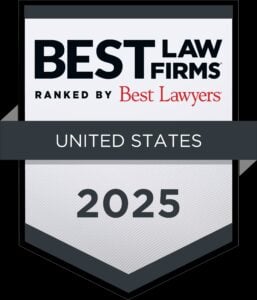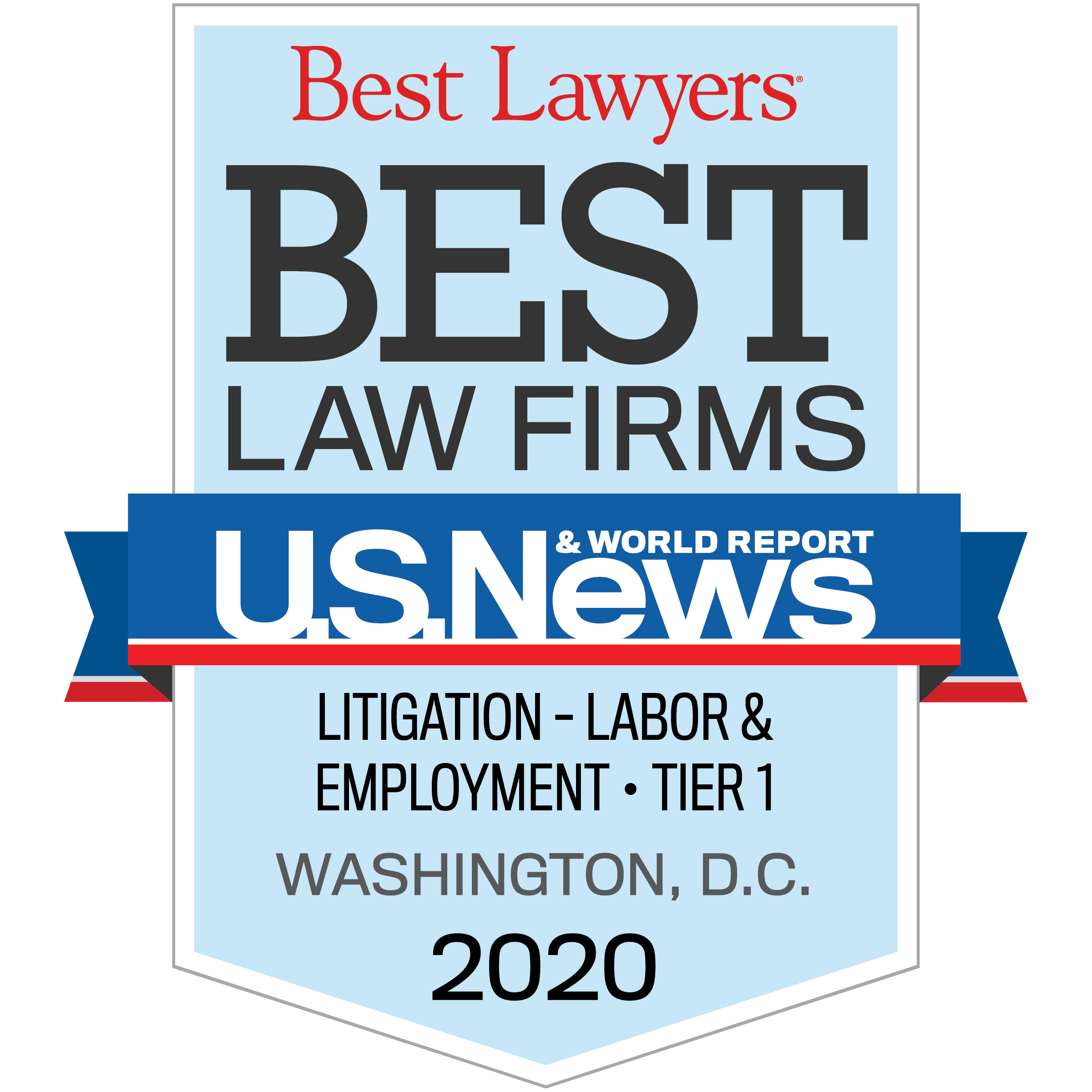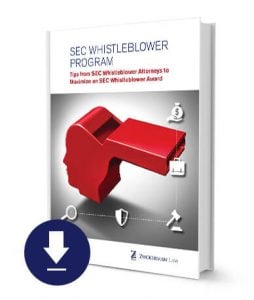
Lawyers Representing SEC Whistleblowers
Under the SEC Whistleblower Program, whistleblowers may receive a reward if they provide the SEC with original information about violations of securities laws, including engaging in brokerage activity and charging fees without registering as a broker-dealer. A whistleblower may receive an award of between 10% and 30% of the total monetary sanctions collected if their information leads the SEC to a successful enforcement action with monetary sanctions in excess of $1 million. If represented by counsel, a whistleblower may submit a tip anonymously to the SEC.
Since 2012, the SEC has paid $1.3 billion in awards to whistleblowers. The largest SEC whistleblower awards to date are $114 million and $50 million. See our article: How to Report Unregistered Convertible Debt Lenders or Penny Stock Dealers and Earn an SEC Whistleblower Award.
Our firm has secured multi-million dollar SEC whistleblower awards for our clients.
If you have information that may qualify for an SEC whistleblower award, contact the Director of our SEC whistleblower practice at [email protected] or call our leading SEC whistleblower lawyers at (202) 930-5901 or (202) 262-8959. All inquiries are confidential. In conjunction with our courageous clients, we have helped the SEC halt multi-million dollar investment schemes, expose violations at large publicly traded companies and return funds to defrauded investors.
Recently the Association of Certified Fraud Examiners published a profile of SEC whistleblower lawyer Matt Stock’s success working with whistleblowers to fight fraud:
Contact us today to find out the strategies that we have successfully employed to secure SEC whistleblower awards for our whistleblower clients.
When Must a Broker Register?
Under Section 15 of the Securities Exchange Act of 1934, most “brokers” and “dealers” must register with the SEC. A “broker” is defined broadly as “any person (individual or entity) engaged in the business of effecting transactions in securities for the account of others.” A “dealer” is defined as “any person engaged in the business of buying and selling securities for his own account, through a broker or otherwise.”
On the SEC’s Broker-Dealer page, it notes that “[s]ometimes you can easily tell if someone is a broker or dealer. For example, a person who executes transactions for others on a securities exchange clearly is a broker. And a firm that advertises publicly it makes a market in securities is obviously a dealer. Other situations can be less clear.”
If an individual or entity is a broker or dealer, it must be properly registered before it provides brokerage services and receives compensation in return.
SEC Enforcement Actions
SEC Enforcement Action Against Private Equity Fund
On June 1, 2016, the SEC announced that a private equity fund advisory firm, Blackstreet Capital Management, and its owner have agreed to pay more than $3.1 million to settle charges that they engaged in brokerage activity and charged fees without registering as a broker-dealer. According to the SEC’s order, Blackstreet fully disclosed to its funds and investors that it would provide brokerage services in exchange for a fee, yet the firm failed to comply with the registration requirements to operate as a broker-dealer.
In addition, the SEC investigation revealed that the owners engaged in conflicted transactions and inadequately disclosed fees and expenses. Notably, the SEC has recently made violations by investment advisers and companies an enforcement priority.
SEC Enforcement Action Against Offshore Broker-Dealers
On April 18, 2013, the SEC charged Gibraltar Global Securities, Inc. a Bahamas-based broker-dealer, $25 million for unlawfully operating as a broker-dealer in the United States. According to the SEC’s complaint, the Bahamas-based broker-dealer clearly targeted and solicited U.S. customers though its website by:
- Offering “offshore” brokerage services with commissions comparable to those on the “mainland.”
- Stating that “[u]sing a Gibraltar offshore brokerage account will enable you to trade on most stock exchanges in the world at a cost equivalent to that incurred using mainland brokers, without paying taxes on the profits.”
- Promising prospective customers an “extra layer of confidentiality” to protect assets from “government seizures or frivolous divorce settlements.”
- Showing price-volume graphs solely for U.S. markets.
- Only charging fees in U.S. dollars – with no provision for currency exchange.
Using these marketing tactics, the Bahamas-based broker-dealer was able to sell approximately $100 million of low-priced microcap securities on behalf of U.S. customers, charging them commissions of between 2-3%.
SEC Fines Florida-based Mining Corp. $8.5 Million
In August 2017, the SEC charged Florida-based Hidalgo Mining Corp. $8.5 million after the company and two of its executive mislead investors in a Mexican silver mine. According to the SEC’s complaint, the company raised $10.35 million from approximately 85 investors by misleading investors about the investment and violating federal securities laws, which included:
- Failing to register with the SEC in order to lawfully sell the securities;
- Making personal written guarantees to some investors that the company’s executives would “assume full responsibility” for repaying investors if the company defaulted (which they could not);
- Failing to disclose this guarantee to the other investors; and
- Failing to disclose to investors that 10% of their investments would be used to pay commissions directly to the executives and the sales team to push their securities offering.
In 2014, the Hidalgo Mining Corp. defaulted and the company executives could not repay the investors. The company allegedly defaulted due to lack of capital and low silver prices. This scheme appears to be prevalent in Florida. In December 2014, the SEC brought a similar enforcement action against a Florida-based gold mining investment company, Aurum Mining LLC. According to the SEC’s complaint, the company and its executives raised approximately $4 million from investors in Florida by making false statements about the investment. The executives then used the funds to purchase personal luxury items, including upscale apartments in Lima and other living and travel expenses.
SEC Whistleblower Reward Program
Under the SEC Whistleblower Program, whistleblowers may be eligible for monetary awards when they voluntarily provide the SEC with original information about violations of federal securities laws that leads the SEC to bring a successful enforcement action resulting in monetary sanctions exceeding $1 million. Click below to hear SEC whistleblower lawyer Matthew Stock’s tips for SEC whistleblowers:
Qualifying for an SEC Whistleblower Award
Whistleblower Protections for SEC Whistleblowers
The SEC Whistleblower Program also protects the confidentiality of whistleblowers and does not disclose information that might directly or indirectly reveal a whistleblower’s identity. Furthermore, the Dodd-Frank Act protects whistleblowers from retaliation by their employers for reporting violations of securities laws.
For more information about protections and remedies for corporate whistleblowers, download our free guide Sarbanes-Oxley Whistleblower Protection: Robust Protection for Corporate Whistleblowers.
SEC Whistleblower Attorneys
For more information about whistleblower rewards and bounties, contact the SEC whistleblower lawyers at Zuckerman Law at 202-262-8959.
U.S. News and Best Lawyers® have named Zuckerman Law a Tier 1 firm in Litigation – Labor and Employment in the Washington DC metropolitan area in the 2018 edition “Best Law Firms.” Washingtonian magazine named two of our attorneys top whistleblower lawyers.

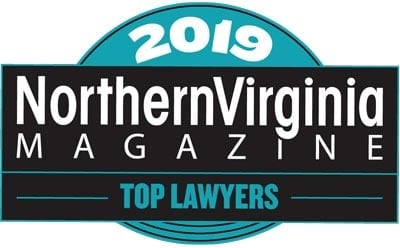
Tips to Successfully Navigate the Process to Obtain an SEC Whistleblower Award
whistleblower_lawyers_012017_infographic


Click here to read reviews from clients that we have represented in whistleblower rewards and whistleblower retaliation matters nationwide.
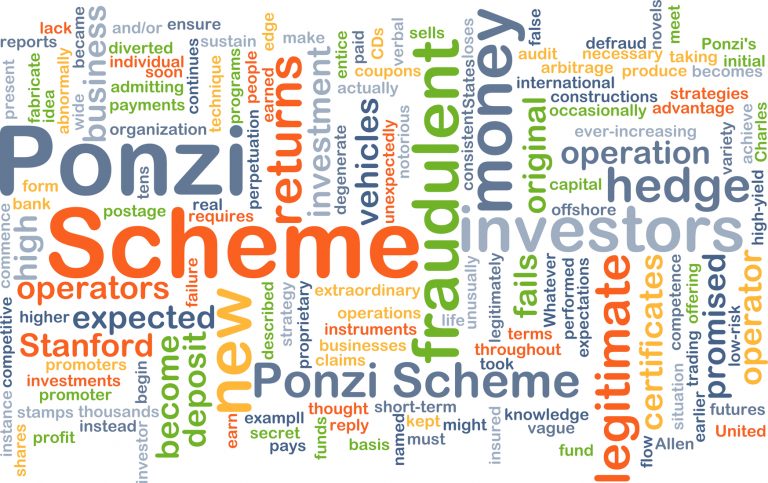
Fraudulent Securities Offerings and Ponzi Scheme Whistleblower Lawyers
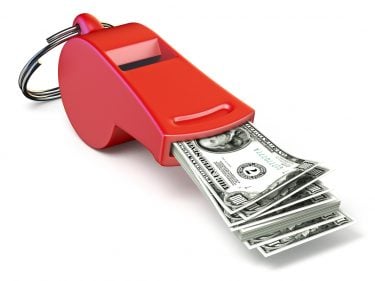
Since 2012, the SEC has awarded nearly $1.3 billion to whistleblowers under the program. The largest SEC whistleblower awards to date are $114 million and $50 million. Our attorneys have substantial experience helping the SEC to halt more than $1 billion in ponzi schemes and fraudulent securities offerings.
If you have information that may qualify for an SEC whistleblower award, contact the Director of our SEC whistleblower practice at [email protected] or call our leading SEC whistleblower lawyers at (202) 930-5901 or (202) 262-8959.






All inquiries are confidential.
Recently the Association of Certified Fraud Examiners published a profile of SEC whistleblower lawyer Matt Stock’s success working with whistleblowers to fight fraud:
Read our tips for SEC whistleblowers and Forbes column about the success of the SEC whistleblower program.
According to a speech by former SEC Enforcement Director Andrew Ceresney, fraudulent securities offerings and Ponzi schemes are the types of securities fraud cases where whistleblowers’ assistance is especially valued. The Director noted that whistleblowers have helped the SEC identify false and misleading statements in offering memoranda and marketing materials, which enables the agency to act quickly and prevent investment frauds from luring more investors. The SEC has issued an investor alert about these fraudulent securities schemes.
Fraudulent Investment Offerings

SEC Enforcement Actions Against False or Misleading Investment Offerings
- On October 13, 2015, UBS agreed to pay $19.5 million to settle charges that it misled U.S. investors about its structured-notes trading strategy. According to the SEC’s press release, UBS falsely stated that the investment relied on a “transparent” and “systematic” currency-trading system that used “market prices” to calculate the financial instruments underlying the index. In reality, UBS failed to disclose hedging trades that reduced the index price by about 5%. As a result of the reduced index price, investors lost roughly $5.5 million.
- On March 9, 2016, the SEC charged California’s largest agricultural water district with misleading investors about its financial condition as it issued a $77 million bond offering. The water district represented to investors that it met or exceeded a 1.25 debt service coverage ratio, which it was required to maintain pursuant to a previous bond offering. In order to meet this ratio, the water district used misleading accounting to record additional revenue by reclassifying funds from reserve accounts. The general manager of the water district jokingly referred to these transactions as “a little Enron accounting.” The actual coverage ratio was only .11, instead of the 1.25 reported to investors.
- On August 15, 2018, the SEC filed an emergency action against Equitybuild, Inc. and Equitybuild Finance, LLC, charging them with operating a $135 million offering fraud involving real estate. According to the SEC’s complaint, the defendants raised these funds by falsely promising safe investments fully secured by income-producing real estate. Thereafter, the defendants took 15-30% of investors’ funds as undisclosed fees, hiding the fees by reporting inflated acquisition costs, and contrary to defendants’ representations, the real estate did not earn enough to pay the double-digit returns promised to investors. As a result, the defendants could only pay earlier investors by raising funds from unwitting new investors in a Ponzi-like fashion.
For more information about offering fraud, see the SEC’s Investor Alert: 10 Red Flags That an Unregistered Offering May Be a Scam.
Ponzi and Pyramid Schemes

According to the SEC, in the classic Pyramid scheme, “participants attempt to make money solely by recruiting new participants into the program. The hallmark of these schemes is the promise of sky-high returns in a short period of time for doing nothing other than handing over your money and getting others to do the same.”
How to Spot a Ponzi Scheme
The SEC compiled a list of red flags that are common to most Ponzi schemes, which include:
- high investment returns with little or no risk;
- overly consistent returns;
- unregistered investments;
- unlicensed sellers;
- secretive and/or complex strategies;
- issues with paperwork; and
- difficulty receiving payments.
How to Spot a Pyramid Scheme
For more information about pyramid schemes, see the SEC’s Investor Alert: Beware of Pyramid Schemes Posing as Multi-Level Marketing Programs.
SEC Enforcement Actions Against Ponzi and Pyramid Schemes
- On March 10, 2016, the SEC charged an investment group and three top executives with hiding the rapidly deteriorating financial condition of the enterprise while raising more than $350 million from investors. In the scheme, the executives defrauded more than 1,500 investors into believing that they were investing in healthcare, education, and transportation when their money was really being used to keep the firm from going bankrupt. The operation showed some of the typical warning signs of a Ponzi scheme, such as promising high rates of return that ranged from 8.5% to 10%. In late 2015, the scheme unraveled after the firm could no longer meet scheduled redemptions.
- On March 24, 2016, the SEC charged a real estate company with engaging in a $2.7 million Ponzi scheme that targeted elderly investors. Like many Ponzi schemes, the company “guaranteed income” to investors. This income was purportedly derived from the profits of a Pennsylvania real estate venture that bought, redeveloped, and sold properties. In reality, the company did not operate a real estate venture, and it used the investments for personal expenses, such as purchasing tickets for sporting events, paying college tuition, and maintaining personal credit cards.
- On May 1, 2018, the SEC announced fraud charges against Arthur Adams and his company, Madison Timber Properties, for running an $85 million Ponzi scheme. According to the SEC’s complaint, Adams lied to investors by telling them their money would be used by his company to secure and harvest timber, and promised annual returns of 12-15%. Instead of using the investors’ money for timber, Adams used it to pay for his own personal expenses, to develop an unrelated real estate project, and to pay back early investors with later investors’ funds.
- On June 19, 2018, the SEC obtained an asset freeze for a $102 million Ponzi scheme. According to the complaint, the defendants raised money from more than 600 investors across the United States. Then, instead of investing the funds as advertised, the fraudsters spent at least $20 million to enrich themselves, paid $38.5 million in Ponzi-like payments, and transferred much of the remainder in transactions that appear unrelated to their purported business.
- On September 19, 2018, the SEC obtained an asset freeze for a $345 million Ponzi scheme. According to the SEC’s complaint, three defendants raised the $345 million from 230 investors across the United States by promising significant profits from the purchase and resale of consumer debt portfolios. Instead of using investors’ money as promised, the defendants allegedly used the funds to make Ponzi-like payments to earlier investors and fund their extravagant lifestyles, including the purchase of luxury homes for millions and 25 high-ends cars for approximately $10.2 million, among other things.
For more information about Ponzi schemes, see the SEC’s General Resources on Ponzi schemes here.
Dodd-Frank Whistleblower Program

Since 2012, the SEC Whistleblower Office has awarded nearly $1.3 billion in awards to whistleblowers.
For more information about the SEC Whistleblower Program, see our eBook Tips from SEC Whistleblower Attorneys to Maximize an SEC Whistleblower Award. Click below to hear SEC whistleblower lawyer Matt Stock’s tips for SEC whistleblowers:
SEC Whistleblower Bounties
Whistleblowers are eligible to receive between 10% and 30% of the monetary sanctions collected.
Corporate Whistleblower Protection
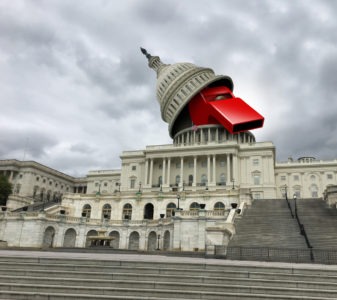
SEC Whistleblower Attorneys
For more information about whistleblower rewards and bounties, contact the SEC whistleblower lawyers at Zuckerman Law at 202-262-8959.
U.S. News and Best Lawyers® have named Zuckerman Law a Tier 1 firm in Litigation – Labor and Employment in the Washington DC metropolitan area in the 2020 edition “Best Law Firms.” In 2017, Washingtonian magazine named two of our attorneys top whistleblower lawyers.
SEC Whistleblower Process
Additional Resources
For more information about the SEC Whistleblower Program, see the following SEC posts:
- SEC v. Merrill et al., case number 1:18-cv-02844,
- SEC Litigation Release: SEC v. Tropikgadget FZE,
- SEC Press Release: SEC v CKB168,
- SEC Press Release: SEC v Rex Venture Group,
- FTC Blog: Pyramids of Fortune?
- FTC Article: Multilevel Marketing
- SEC Investor Alert: Social Media and Investing – Avoiding Fraud,
- SEC Investor Bulletin: Affinity Fraud,
- Investor.gov Article: Avoiding Fraud, and
- SEC Interpretative Release: Multi-level Distributorships & Pyramid Sales Plans.
whistleblower_lawyers_012017_infographic

CFTC Whistleblower Reward Lawyers
The CFTC Whistleblower Reward Program provides whistleblowers with a strong monetary incentive, as well as anti-retaliation protections, for reporting wrongdoing to the CFTC. This includes violations or fraud in connection with:
- Commodity futures;
- Commodity options;
- Swap trading markets;
- Derivatives; and
-
Foreign corrupt practices.
On October 21, 2021, the CFTC awarded a whistleblower $200 million for providing information that led the CFTC to evidence of wrongdoing concerning the manipulation of financial benchmarks used by global banks. Approximately 65% of whistleblower cases filed at the CFTC involve charges of commodities fraud, market manipulation schemes, and spoofing. Whistleblower tips to CFTC have helped drive record-level enforcement activity.
Since 2014, the CFTC has issued more than $400 million in awards to whistleblowers. The largest CFTC whistleblower awards to date are $200 million, $45 million, $30 million, and $10 million. Whistleblower disclosures have enabled the CFTC to bring successful enforcement actions against wrongdoers with orders for more than $3 billion in monetary relief. See our recent post How to Report Swaps Manipulation or Swaps Reporting Violations and Qualify for a CFTC Whistleblower Award.
Call our CFTC whistleblower lawyers today at 202-930-5901 or contact us here to find out if you are eligible for a CFTC whistleblower award. A delay in reporting commodities fraud can potentially disqualify a whistleblower from recovering an award or can lower a whistleblower award, so call us today for a free consultation. We represent CFTC whistleblowers concerning a wide variety of market manipulation schemes.






Our experienced CFTC whistleblower lawyers are frequently quoted in the media about
whistleblower reward programs. Recently, the Wall Street Journal quoted Jason Zuckerman in an article titled Senate Passes Bill to Fund CFTC Whistleblower Program, and quoted Matthew Stock, Director of our Whistleblower Rewards Practice, in an article titled CFTC Whistleblower Tips and Awards Fall After Record 2018.
Recently the Association of Certified Fraud Examiners published a profile of Matt Stock’s success working with whistleblowers to fight fraud:
CFTC Whistleblower Reward Program

Original information “leads to” a successful enforcement action if either:
- The original information caused the staff to open an investigation, reopen an investigation, or inquire into different conduct as part of a current investigation, and the Commission brought a successful action based in whole or in part on conduct that was the subject of the original information; or
- The conduct was already under examination or investigation, and the original information significantly contributed to the success of the action.
In determining a reward percentage, the CFTC considers the particular facts and circumstances of each case. For example, positive factors may include the significance of the information, the level of assistance provided by the whistleblower and the whistleblower’s attorney, and the law enforcement interests at stake.
Awards are paid from the CFTC Customer Protection Fund, which is financed through monetary collected by the CFTC in any covered judicial or administrative action that is not otherwise distributed, or ordered to be distributed, to victims of a violation of the CEA underlying such action.
Anonymous Whistleblowing to the CFTC

The confidentiality protections of the CEA require the CFTC not to disclose information that “could reasonably be expected to reveal the identity of the whistleblower.” According to a recent report of the CFTC Whistleblower Office, the Office takes steps to protect whistleblower confidentiality. For example, in a recent fiscal year the Office considered 267 requests to produce documents from the investigation and litigation files of the Enforcement Division and found 16 requests to implicate whistleblower-identifying information. The Office worked with the Enforcement Division to remove whistleblower-identifying information or otherwise take steps to preserve whistleblower confidentiality.
CFTC Whistleblower Awards
The table below identifies some of the largest CFTC whistleblowers awards:
| Whistleblower Award | Date | Basis for Whistleblower Award |
|---|---|---|
| $200 million | October 21, 2021 | October 21, 2021, the CFTC "announced an award of nearly $200 million to a whistleblower whose specific, credible, and timely original information significantly contributed to an already open investigation and led to a successful enforcement action, as well as to the success of two related actions, by a U.S. federal regulator and a foreign regulator." For more information about the award, see our article here. |
| $45 million | August 2, 2018 | On August 2, 2018, the CFTC announced a $45 million award to multiple whistleblowers. Reports indicate the award was related to ISDAFIX manipulation enforcement actions. |
| $30 million | July 12, 2018 | On July 12, 2018, the CFTC announced its largest-ever whistleblower award given to an individual. The whistleblower exposed that JP Morgan did not properly disclose conflicts of interests to clients. Find the order here. |
| $10 million | March 28, 2016 | On April 4, 2016, the CFTC announced a $10 million award given to an individual. The whistleblower provided “valuable information” regarding violations of the Commodity Exchange Act. Find the order here. |
| $7 million | September 27, 2019 | On September 27, 2019, the CFTC issued a $7 million award to a whistleblower. CFTC Director of Enforcement James McDonald stated in the Press Release: “Forty percent of our investigations now involve whistleblowers. We expect that number to increase as the CFTC continues to expand its whistleblower program.” Find the order here. |
| $6 million | June 9, 2020 | On June 9, 2020, the CFTC issued a $6 million award to a whistleblower who voluntarily provided original information that led the CFTC to bring a successful enforcement action. According to the Press Release announcing the award, the CFTC opened its investigation upon receiving the whistleblower’s information, which was specific, credible and timely. |
| $2.5 million | June 24, 2019 | On July 24, 2019, the CFTC issued a $2.5 million CFTC whistleblower award to an individual. The award was reduced because of the whistleblower’s delay in reporting. Director McDonald said the delay was “unreasonable” and the whistleblower could have received a larger award had this person not waited. Find the order here. |
| $2 million | July 1, 2019 | On July 1, 2019, the CFTC issued a $2 million CFTC whistleblower award to two whistleblowers. The whistleblowers provided multiple interviews and documents that were “highly informative” and provided the agency “with significant information” that prompted the CFTC to open an investigation. The whistleblowers also reported the violations to another organization that conducted a separate investigation and shared its findings with the CFTC. Find the order here. |
| $2 million | March 4, 2019 | On March 4, 2019, the CFTC announced an award of over $2 million to a whistleblower. The whistleblower conducted an "independent analysis" of market data, which aided greatly in the CFTC’s investigation. The whistleblower was not an insider. The order is here. |
| $1.5 million | May 6, 2019 | On May 6, 2019, the CFTC announced a $1.5 million award to a whistleblower who tried to report it internally first. The CFTC granted the reward to the whistleblower for both a CFTC action and a related action brought by another federal regulator. Find the order here. |
| $290,000 | September 29, 2015 | On September 29, 2015, the CFTC announced an award of $290,000 to a whistleblower. Two applicants applied for the award, but the CFTC only awarded one of the whistleblowers because the “the information provided by the second applicant did not lead to a successful enforcement . . . action.” |
| $240,000 | May 20, 2014 | On May 20, 2014, the CFTC announced its first-ever whistleblower award of $240,000. The then-acting director of the CFTC reported that the whistleblower provided “specific, timely and credible information” that led to a successful investigation. |
Protections Against Whistleblower Retaliation

A whistleblower is entitled to this protection even if they do not receive a reward. The anti-retaliation provision applies to any whistleblower who possesses “a reasonable belief that the information the whistleblower is providing relates to a possible violation of the Commodity Exchange Act (CEA), or the rules or regulations thereunder, that has occurred, is ongoing, or is about to occur.”
The CFTC can take enforcement action against an employer that “retaliates against a whistleblower by discharge, demotion, suspension, direct or indirect threats or harassment, or any other manner of discrimination” because the whistleblower provided “information to the Commission after reporting the information through internal whistleblower, legal or compliance procedures.” 17 C.F.R. 165.20(b).
If you have suffered whistleblower retaliation, call the whistleblower retaliation lawyers at our firm at 202-262-8959.
CFTC Prohibits “Gag Clauses” in Confidentiality and Employment Agreements

No person may take any action to impede an individual from communicating directly with the Commission’s staff about a possible violation of the Commodity Exchange Act, including by enforcing, or threatening to enforce, a confidentiality agreement or predispute arbitration agreement with respect to such communications.
This prohibition is critical to the success of any whistleblower program because companies often use overly broad confidentiality agreements to silence and punish whistleblowers.
Experienced CFTC Whistleblower Lawyers
The whistleblower lawyers at Zuckerman Law have substantial experience representing corporate whistleblowers in whistleblower protection and whistleblower rewards cases.
Our team of attorneys includes a licensed Certified Public Accountant and Certified Fraud Examiner whose experience working at a large audit firm enhances the firm’s to investigate complex fraud schemes and prepare effective submissions to the CFTC. For a free, confidential consultation, click here or call us at 202-262-8959.
Violations of the CEA that Qualify for a CFTC Whistleblower Award
The largest CFTC whistleblower awards to date are $200 million, $45 million, and $30 million. The main types of violations that may qualify for a CFTC whistleblower award include:
Spoofing

Spoofing affects prices because the artificial increase in activity on either the buy or sell side of an asset creates the perception that there is a shift in the number of investors wanting to buy or sell. Spoofers place false bids or offers with the intent to cancel before executing so that they can then follow-through on genuine orders at a more favorable price. Often, spoofers use automated trading and algorithms to achieve their goals. According to a CFTC alert on spoofing related to CEA violations, the CFTC is concerned with conduct such as:
- manual and automated trading schemes that place and quickly cancel bids and offers in futures contracts in order to benefit other orders and/or positions;
- orders being quickly placed and canceled at or near the best bid or offer, especially if opposite-side orders are filled;
- multiple orders of the same size repeatedly and simultaneously being placed and canceled; and
- any scheme designed to cause prices to artificially move.
Examples of CFTC spoofing enforcement actions include:
- In November 2019, the CFTC imposed $67.4 million in sanctions against Tower Research Capital LLC, a proprietary trading firm, arising from a manipulative and deceptive scheme. On thousands of occasions, three former Tower traders, placed orders to buy or sell futures contracts with the intent to cancel those orders prior to execution. The traders often used an order splitter to enter several smaller, randomly-sized orders in an attempt to obscure their scheme from other market participants. According to a CFTC press release, “[t]he traders engaged in this scheme to induce other market participants to trade against their genuine orders—by intentionally sending a false signal to the market that they wanted to buy or sell the number of contracts specified in the spoof orders and creating a false impression of supply or demand—so that the genuine orders would fill sooner, at better prices, or in larger quantities than they otherwise would.”
- In August 2021, a federal jury convicted Edward Bases and John Pacilio, two former Merrill Lynch traders, for engaging in a multi-year fraud scheme to manipulate the precious metals market. According to a press release announcing the action, the two traders fraudulently pushed market prices up or down by routinely placing large “spoof” orders in the precious metals futures markets that they did not intend to fill. After manipulating the market, Bases and Pacilio executed trades at favorable prices for their own gain, and to the detriment of other traders. The DOJ’s Indictment detailed how Bases and Pacilio discussed their intent to “push” the market through spoofing in electronic chat conversations.
- In September 2020, JPMorgan Chase & Co. agreed to pay disgorgement of $920 million in parallel actions brought by the CFTC, DOJ, and the SEC engaging in manipulative trading of U.S. Treasury securities. According to the SEC’s order, certain traders on J.P. Morgan Securities’ Treasuries trading desk placed genuine orders to buy or sell a particular Treasury security, while nearly simultaneously placing spoofing orders, which the traders did not intend to execute, for the same series of Treasury security on the opposite side of the market. The spoofing orders were intended to create a false appearance of buy or sell interest, which would induce other market participants to trade against the genuine orders at prices that were more favorable to J.P. Morgan Securities than J.P. Morgan Securities otherwise would have been able to obtain.
Corrupt Practices

Companies and individuals engaging in foreign corrupt practices should recognize that this sort of misconduct might constitute fraud, manipulation, false reporting, or a number of other types of violations under the CEA, and thus be subject to enforcement actions brought by the CFTC. Bribes might be employed, for example, to secure business in connection with regulated activities like trading, advising, or dealing in swaps or derivatives. Corrupt practices might be used to manipulate benchmarks that serve as the basis for related derivatives contracts. Prices that are the product of corruption might be falsely reported to benchmarks. Or corrupt practices in any number of forms might alter the prices in commodity markets that drive U.S. derivatives prices. We currently have open investigations involving similar conduct.
In December 2020, the CFTC exercised that authority by imposing a $95 million civil penalty to settle charges against Vitol Inc, for manipulative and deceptive conduct involving foreign corruption and physical and derivatives trading in the U.S. and global oil market. The CFTC found that “Vitol committed fraud by making corrupt payments (e.g., bribes and kickbacks) to employees and agents of certain state-owned entities (SOEs) in Brazil, Ecuador, and Mexico to obtain preferential treatment and access to trades with the SOEs to the detriment of the SOEs and other market participants.” The corrupt payments were concealed by funneling them through offshore bank accounts or to shell entities, and at times, issuing deceptive invoices for purported “market intelligence” or “sell support.” The objective of these illicit payments was to secure unlawful competitive advantages in trading physical oil products and derivatives.
Trading on Material Nonpublic Information

The fraud or manipulation must be in connection with any swap, or contract of sale of any commodity in interstate commerce, or contract for future delivery on or subject to the rules of any registered entity. Examples of prohibited trading include:
- trading on material nonpublic information (MNPI) that was obtained by fraud or deception;
- trading on market-moving information that the source had a duty to protect;
- brokers front running customer orders or taking the other side of any customer order without consent; and
- improperly disclosing MNPI or using MNPI provided by a counterparty without the counterparty’s consent.
An example of the CFTC enforcing its prohibition against the misappropriation of MNPI is a September 29, 2016 enforcement taken against Jon P. Ruggles for engaging in fraudulent, fictitious, and non-competitive trades in crude oil and heating oil futures and options and RBOB gasoline futures on the NYMEX. The CFTC’s order settling the charges requires Ruggles to disgorge ill-gotten gains totaling $3,501,306, imposes a civil monetary penalty of $1.75 million, and permanently bans him from trading and registering with the CFTC. Ruggles, who was responsible for developing his former employer’s fuel hedging strategies and for executing the employer’s trades in certain NYMEX products, misappropriated the employer’s trading information for his own benefit in personal accounts that he controlled.
Benchmark Rates Manipulation
In a benchmark-rate-manipulation scheme, individuals seek to increase or decrease impartial global reference rates for their own financial gain. This misconduct is typically associated with the U.S. Dollar International Swaps and Derivatives Association Fix (USD ISDAFIX), benchmark-swap rates, LIBOR, Euribor, and other foreign interest-rate benchmarks.
On May 25, 2016, the CFTC ordered Citibank to pay $250 million for attempted manipulation and false reporting of USD ISDAFIX benchmark-swap rates. According to a CFTC press release, Citibank traders “attempted to manipulate and made false reports concerning the USD ISDAFIX by skewing the Bank’s USD ISDAFIX submissions . . . in order to benefit the Bank’s trading positions at the expense of its derivatives counterparties.” The CFTC uncovered numerous instances of Citibank’s USD ISDAFIX misconduct through the bank’s exotic traders’ instant messages. In March 2008, one of Citibank’s exotics traders stated in separate instant messages to other market participants that “[I] moved the screen btw” and “[I] moved the screen to 183 on 2s10s…[One of Citibank’s swaps traders] is pretty good at it,” and “[I] push the 2s10s swap on the screen to 183.4, very proud of myself.”
How the CFTC Determines Whistleblower Awards
According to the CFTC’s Enforcement Manual, “[w]hen the CFTC obtains a judicial or administrative order that—by itself or together with judgments or orders in related CFTC enforcement actions or Related Actions brought by certain other entities—imposes monetary sanctions exceeding $1,000,000, then the order becomes a covered judicial or administrative action upon which the CFTC may pay out whistleblower awards. The WBO will then post a Notice of Covered Action, and whistleblowers may begin applying for awards.”
A recent CFTC order awarding $10 million to a CFTC whistleblower clarifies that the CFTC employs a flexible approach to weighing the positive and negative award criteria and no one factor is dispositive:
The analytical framework in the Rules provides general principles without mandating a particular result. The criteria for determining the amount of an award in Rule 165.9, 17 C.F.R. § 165.9, are not listed in any order of importance and are not assigned relative importance. Rule 165.9(b) provides a list of factors that may increase the award amount, and Rule 165.9(c) provides a list of factors that may decrease the award amount. However, the Rules do not specify how much any factor in Rule 165.9(b) or (c) should increase or decrease the award percentage. Not satisfying any one of the positive factors does not mean that the award percentage must be less than 30%. and the converse is true. Not having any one of the negative factors does not mean the award percentage must be greater than 10%. These principles serve to prevent a vital whistleblower from being penalized for not satisfying the positive factors. For example, a whistleblower who provides the Commission with significant information and substantial assistance such as testifying at trial and producing documents containing direct evidence of violations could receive 30% even if the whistleblower did not participate in any internal compliance systems. In contrast, in order to prevent a windfall, a whistleblower who provides some useful but partial information and limited assistance to the Commission may receive 10% even if none of the negative factors were present.
Key Rules Governing CFTC Whistleblower Award Eligibility
- A whistleblower may be eligible for an award by providing the Commission original information without being the original source of the information. [Rule 165.5(b)]
- A whistleblower retains eligibility for an award based on information provided by the whistleblower to certain specified persons or authorities, now to include foreign futures authorities, prior to the time that the whistleblower provided the information to the Commission. [Rule 165.2(i)(2); Rule 165.2(l)(2)]
- Where a whistleblower first provides information to certain specified persons or authorities before reporting to the Commission, the timeframe for a whistleblower to submit a Form TCR (Tip, Complaint or Referral) to the Commission has been extended from 120 days to 180 days. If a whistleblower submits a Form TCR within this 180-day period after reporting to the other person or authority, the Commission will consider the whistleblower to have provided information to the Commission as of the date of the whistleblower’s original disclosure to the other person or authority. [Rule 165.2(i)(3); Rule 165.2(l)(2)]
- The Commission may waive its procedural requirements based upon a showing of extraordinary circumstances. [Rule 165.5(c)]
Resources About CFTC Whistleblower Reward Program
CFTC Whistleblower Statute, 7 U.S.C. § 26
CFTC Whistleblower Rules, 17 C.F.R. pt. 165
Dodd-Frank Act Provision Creating CFTC Whistleblower Reward Program
§26. Commodity whistleblower incentives and protection
(a) Definitions
In this section:
(1) Covered judicial or administrative action
The term “covered judicial or administrative action” means any judicial or administrative action brought by the Commission under this chapter that results in monetary sanctions exceeding $1,000,000.
(2) Fund
The term “Fund” means the Commodity Futures Trading Commission Customer Protection Fund established under subsection (g).
(3) Monetary sanctions
The term “monetary sanctions”, when used with respect to any judicial or administrative action means—(A) any monies, including penalties, disgorgement, restitution, and interest ordered to be paid; and(B) any monies deposited into a disgorgement fund or other fund pursuant to section 7246(b) of title 15, as a result of such action or any settlement of such action.
(4) Original information
The term “original information” means information that—(A) is derived from the independent knowledge or analysis of a whistleblower;(B) is not known to the Commission from any other source, unless the whistleblower is the original source of the information; and(C) is not exclusively derived from an allegation made in a judicial or administrative hearing, in a governmental report, hearing, audit, or investigation, or from the news media, unless the whistleblower is a source of the information.
(5) Related action
The term “related action”, when used with respect to any judicial or administrative action brought by the Commission under this chapter, means any judicial or administrative action brought by an entity described in subclauses (I) through (VI) of subsection (h)(2)(C) that is based upon the original information provided by a whistleblower pursuant to subsection (a) that led to the successful enforcement of the Commission action.
(6) Successful resolution
The term “successful resolution”, when used with respect to any judicial or administrative action brought by the Commission under this chapter, includes any settlement of such action.
(7) Whistleblower
The term “whistleblower” means any individual, or 2 or more individuals acting jointly, who provides information relating to a violation of this chapter to the Commission, in a manner established by rule or regulation by the Commission.
(b) Awards
(1) In general
In any covered judicial or administrative action, or related action, the Commission, under regulations prescribed by the Commission and subject to subsection (c), shall pay an award or awards to 1 or more whistleblowers who voluntarily provided original information to the Commission that led to the successful enforcement of the covered judicial or administrative action, or related action, in an aggregate amount equal to—(A) not less than 10 percent, in total, of what has been collected of the monetary sanctions imposed in the action or related actions; and(B) not more than 30 percent, in total, of what has been collected of the monetary sanctions imposed in the action or related actions.
(2) Payment of awards
Any amount paid under paragraph (1) shall be paid from the Fund.
(c) Determination of amount of award; denial of award
(1) Determination of amount of award
(A) Discretion
The determination of the amount of an award made under subsection (b) shall be in the discretion of the Commission.
(B) Criteria
In determining the amount of an award made under subsection (b), the Commission—(i) shall take into consideration—(I) the significance of the information provided by the whistleblower to the success of the covered judicial or administrative action;(II) the degree of assistance provided by the whistleblower and any legal representative of the whistleblower in a covered judicial or administrative action;(III) the programmatic interest of the Commission in deterring violations of the 1 chapter (including regulations under the 1 chapter) by making awards to whistleblowers who provide information that leads to the successful enforcement of such laws; and(IV) such additional relevant factors as the Commission may establish by rule or regulation; and
(ii) shall not take into consideration the balance of the Fund.
(2) Denial of award
No award under subsection (b) shall be made—(A) to any whistleblower who is, or was at the time the whistleblower acquired the original information submitted to the Commission, a member, officer, or employee of—(i) a appropriate regulatory agency;(ii) the Department of Justice;(iii) a registered entity;(iv) a registered futures association;(v) a self-regulatory organization as defined in section 78c(a) of title 15; or(vi) a law enforcement organization;(B) to any whistleblower who is convicted of a criminal violation related to the judicial or administrative action for which the whistleblower otherwise could receive an award under this section;(C) to any whistleblower who submits information to the Commission that is based on the facts underlying the covered action submitted previously by another whistleblower;(D) to any whistleblower who fails to submit information to the Commission in such form as the Commission may, by rule or regulation, require.
(d) Representation
(1) Permitted representation
Any whistleblower who makes a claim for an award under subsection (b) may be represented by counsel.
(2) Required representation
(A) In general
Any whistleblower who anonymously makes a claim for an award under subsection (b) shall be represented by counsel if the whistleblower submits the information upon which the claim is based.
(B) Disclosure of identity
Prior to the payment of an award, a whistleblower shall disclose the identity of the whistleblower and provide such other information as the Commission may require, directly or through counsel for the whistleblower.
(e) No contract necessary
No contract with the Commission is necessary for any whistleblower to receive an award under subsection (b), unless otherwise required by the Commission, by rule or regulation.
(f) Appeals
(1) In general
Any determination made under this section, including whether, to whom, or in what amount to make awards, shall be in the discretion of the Commission.
(2) Appeals
Any determination described in paragraph (1) may be appealed to the appropriate court of appeals of the United States not more than 30 days after the determination is issued by the Commission.
(3) Review
The court shall review the determination made by the Commission in accordance with section 7064 2 of title 5.
(g) Commodity Futures Trading Commission Customer Protection Fund
(1) Establishment
There is established in the Treasury of the United States a revolving fund to be known as the “Commodity Futures Trading Commission Customer Protection Fund”.
(2) Use of Fund
The Fund shall be available to the Commission, without further appropriation or fiscal year limitation, for—(A) the payment of awards to whistleblowers as provided in subsection (a); and(B) the funding of customer education initiatives designed to help customers protect themselves against fraud or other violations of this chapter, or the rules and regulations thereunder.
(3) Deposits and credits
There shall be deposited into or credited to the Fund:
(A) Monetary sanctions
Any monetary sanctions collected by the Commission in any covered judicial or administrative action that is not otherwise distributed to victims of a violation of this chapter or the rules and regulations thereunder underlying such action, unless the balance of the Fund at the time the monetary judgment is collected exceeds $100,000,000.
(B) Additional amounts
If the amounts deposited into or credited to the Fund under subparagraph (A) are not sufficient to satisfy an award made under subsection (b), there shall be deposited into or credited to the Fund an amount equal to the unsatisfied portion of the award from any monetary sanction collected by the Commission in any judicial or administrative action brought by the Commission under this chapter that is based on information provided by a whistleblower.
(C) Investment income
All income from investments made under paragraph (4).
(4) Investments
(A) Amounts in Fund may be invested
The Commission may request the Secretary of the Treasury to invest the portion of the Fund that is not, in the Commission’s judgment, required to meet the current needs of the Fund.
(B) Eligible investments
Investments shall be made by the Secretary of the Treasury in obligations of the United States or obligations that are guaranteed as to principal and interest by the United States, with maturities suitable to the needs of the Fund as determined by the Commission.
(C) Interest and proceeds credited
The interest on, and the proceeds from the sale or redemption of, any obligations held in the Fund shall be credited to, and form a part of, the Fund.
(5) Reports to Congress
Not later than October 30 of each year, the Commission shall transmit to the Committee on Agriculture, Nutrition, and Forestry of the Senate, and the Committee on Agriculture of the House of Representatives a report on—(A) the Commission’s whistleblower award program under this section, including a description of the number of awards granted and the types of cases in which awards were granted during the preceding fiscal year;(B) customer education initiatives described in paragraph (2)(B) that were funded by the Fund during the preceding fiscal year;(C) the balance of the Fund at the beginning of the preceding fiscal year;(D) the amounts deposited into or credited to the Fund during the preceding fiscal year;(E) the amount of earnings on investments of amounts in the Fund during the preceding fiscal year;(F) the amount paid from the Fund during the preceding fiscal year to whistleblowers pursuant to subsection (b);(G) the amount paid from the Fund during the preceding fiscal year for customer education initiatives described in paragraph (2)(B);(H) the balance of the Fund at the end of the preceding fiscal year; and(I) a complete set of audited financial statements, including a balance sheet, income statement, and cash flow analysis.
(h) Protection of whistleblowers
(1) Prohibition against retaliation
(A) In general
No employer may discharge, demote, suspend, threaten, harass, directly or indirectly, or in any other manner discriminate against, a whistleblower in the terms and conditions of employment because of any lawful act done by the whistleblower—(i) in providing information to the Commission in accordance with subsection (b); or(ii) in assisting in any investigation or judicial or administrative action of the Commission based upon or related to such information.
(B) Enforcement
(i) Cause of action
An individual who alleges discharge or other discrimination in violation of subparagraph (A) may bring an action under this subsection in the appropriate district court of the United States for the relief provided in subparagraph (C), unless the individual who is alleging discharge or other discrimination in violation of subparagraph (A) is an employee of the Federal Government, in which case the individual shall only bring an action under section 1221 of title 5.
(ii) Subpoenas
A subpoena requiring the attendance of a witness at a trial or hearing conducted under this subsection may be served at any place in the United States.
(iii) Statute of limitations
An action under this subsection may not be brought more than 2 years after the date on which the violation reported in subparagraph (A) is committed.
(C) Relief
Relief for an individual prevailing in an action brought under subparagraph (B) shall include—(i) reinstatement with the same seniority status that the individual would have had, but for the discrimination;(ii) the amount of back pay otherwise owed to the individual, with interest; and(iii) compensation for any special damages sustained as a result of the discharge or discrimination, including litigation costs, expert witness fees, and reasonable attorney’s fees.
(2) Confidentiality
(A) In general
Except as provided in subparagraphs (B) and (C), the Commission, and any officer or employee of the Commission, shall not disclose any information, including information provided by a whistleblower to the Commission, which could reasonably be expected to reveal the identity of a whistleblower, except in accordance with the provisions of section 552a of title 5, unless and until required to be disclosed to a defendant or respondent in connection with a public proceeding instituted by the Commission or any entity described in subparagraph (C). For purposes of section 552 of title 5, this paragraph shall be considered a statute described in subsection (b)(3)(B) of such section 552.
(B) Effect
Nothing in this paragraph is intended to limit the ability of the Attorney General to present such evidence to a grand jury or to share such evidence with potential witnesses or defendants in the course of an ongoing criminal investigation.
(C) Availability to government agencies
(i) In general
Without the loss of its status as confidential in the hands of the Commission, all information referred to in subparagraph (A) may, in the discretion of the Commission, when determined by the Commission to be necessary or appropriate to accomplish the purposes of this chapter and protect customers and in accordance with clause (ii), be made available to—(I) the Department of Justice;(II) an appropriate department or agency of the Federal Government, acting within the scope of its jurisdiction;(III) a registered entity, registered futures association, or self-regulatory organization as defined in section 78c(a) of title 15;(IV) a State attorney general in connection with any criminal investigation;(V) an appropriate department or agency of any State, acting within the scope of its jurisdiction; and(VI) a foreign futures authority.
(ii) Maintenance of information
Each of the entities, agencies, or persons described in clause (i) shall maintain information described in that clause as confidential, in accordance with the requirements in subparagraph (A).
(iii) Study on impact of FOIA exemption on Commodity Futures Trading Commission
(I) Study
The Inspector General of the Commission shall conduct a study—(aa) on whether the exemption under section 552(b)(3) of title 5 (known as the Freedom of Information Act) established in paragraph (2)(A) aids whistleblowers in disclosing information to the Commission;(bb) on what impact the exemption has had on the public’s ability to access information about the Commission’s regulation of commodity futures and option markets; and(cc) to make any recommendations on whether the Commission should continue to use the exemption.
(II) Report
Not later than 30 months after July 21, 2010, the Inspector General shall—(aa) submit a report on the findings of the study required under this clause to the Committee on Banking, Housing, and Urban Affairs of the Senate and the Committee on Financial Services of the House of Representatives; and(bb) make the report available to the public through publication of a report on the website of the Commission.
(3) Rights retained
Nothing in this section shall be deemed to diminish the rights, privileges, or remedies of any whistleblower under any Federal or State law, or under any collective bargaining agreement.
(i) Rulemaking authority
The Commission shall have the authority to issue such rules and regulations as may be necessary or appropriate to implement the provisions of this section consistent with the purposes of this section.
(j) Implementing rules
The Commission shall issue final rules or regulations implementing the provisions of this section not later than 270 days after July 21, 2010.
(k) Original information
Information submitted to the Commission by a whistleblower in accordance with rules or regulations implementing this section shall not lose its status as original information solely because the whistleblower submitted such information prior to the effective date of such rules or regulations, provided such information was submitted after July 21, 2010.
(l) Awards
A whistleblower may receive an award pursuant to this section regardless of whether any violation of a provision of this chapter, or a rule or regulation thereunder, underlying the judicial or administrative action upon which the award is based occurred prior to July 21, 2010.
(m) Provision of false information
A whistleblower who knowingly and willfully makes any false, fictitious, or fraudulent statement or representation, or who makes or uses any false writing or document knowing the same to contain any false, fictitious, or fraudulent statement or entry, shall not be entitled to an award under this section and shall be subject to prosecution under section 1001 of title 18.
(n) Nonenforceability of certain provisions waiving rights and remedies or requiring arbitration of disputes
(1) Waiver of rights and remedies
The rights and remedies provided for in this section may not be waived by any agreement, policy form, or condition of employment including by a predispute arbitration agreement.
(2) Predispute arbitration agreements
No predispute arbitration agreement shall be valid or enforceable, if the agreement requires arbitration of a dispute arising under this section.(Sept. 21, 1922, ch. 369, §23, as added Pub. L. 111–203, title VII, §748, July 21, 2010, 124 Stat. 1739.)
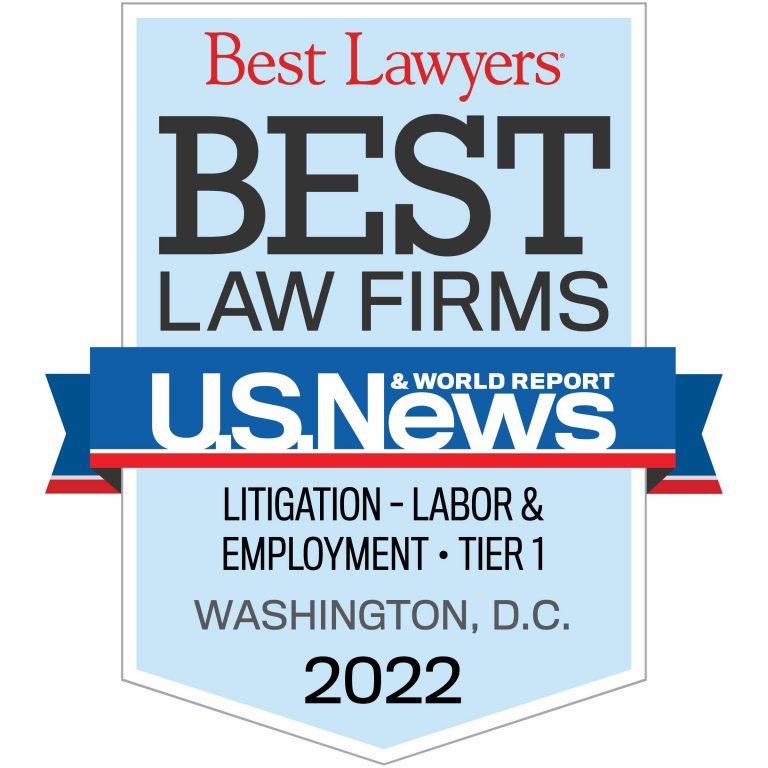
Experienced SOX Whistleblower Lawyers: Tier 1 Firm
The SOX whistleblower lawyers at Zuckerman Law have substantial experience litigating Sarbanes Oxley whistleblower retaliation claims and have achieved substantial recoveries for officers, executives, accountants, auditors, and other senior professionals.
Click here to read client testimonials about the firm’s work in SOX whistleblower matters and other employment-related litigation. In 2019, the National Law Review awarded Zuckerman its Go-To Thought Leadership Award for his analysis of developments in whistleblower law.
To schedule a free preliminary consultation, click here or call us at 202-262-8959.






What is the Sarbanes-Oxley (SOX) corporate whistleblower protection law?
The Sarbanes-Oxley Act (“SOX”) prohibits employers from taking adverse employment actions against employees (also referred to here as “whistleblowers”) in retaliation for reporting information about conduct that the employees reasonably believe constitutes securities fraud, shareholder fraud, bank fraud, mail fraud, wire fraud, or a violation of any SEC rule or regulation. Adverse employment actions include discharging, demoting, suspending, threatening, harassing, or in any other manner discriminating against a whistleblower. Even disclosing the identity of a whistleblower has been held to be an adverse employment action under SOX.
The purpose of these protections is to combat a “corporate code of silence” that discouraged employees from reporting suspected fraud internally or to the authorities. To avoid another Enronesque catastrophe, Congress sought to ensure that whistleblowers could serve as an effective early-warning system for potential fraud. Congress did so by specifying that to be protected under SOX: (1) whistleblowers need not complain of actual fraud but rather conduct that they reasonably believe constitutes fraud, and (2) whistleblowers need not wait until fraud occurs but rather may complain about violations that they reasonably believe are likely to occur.
Guide to SOX Corporate Whistleblower Protection Law from SOX Whistleblower Lawyers
The whistleblower protection provision of the Sarbanes-Oxley Act provides robust protection to corporate whistleblowers, and indeed some SOX whistleblowers have achieved substantial recoveries. Zuckerman Law has released a guide to the SOX whistleblower protection law: Sarbanes-Oxley Whistleblower Protection: Robust Protection for Corporate Whistleblowers.
The guide summarizes SOX whistleblower protections and offers concrete tips for corporate whistleblowers from lawyers that have more than a decade of experience litigating SOX whistleblower cases.
The goal of the guide is to arm corporate whistleblowers with the knowledge to effectively combat whistleblower retaliation, avoid the pitfalls that can weaken a SOX whistleblower case, and formulate an effective strategy to obtain the maximum recovery.
Who is protected under the SOX Corporate Whistleblower Protection Law?
Section 806 of SOX protects (1) employees of publicly traded companies and (2) employees of contractors and subcontractors of publicly traded companies who report fraud committed by a publicly traded company (as opposed to fraud committed by a private company, including contractors and subcontractors).
What whistleblowing is protected under SOX, i.e., what is SOX protected activity or SOX protected conduct?
SOX protects employee disclosures of conduct that an employee reasonably believes constitutes securities fraud, shareholder fraud, bank fraud, mail fraud, wire fraud, or a violation of any SEC rule or regulation. SOX protects disclosures of violations that a whistleblower reasonably believes are likely to occur, even if such violations have not yet been committed.
Does a whistleblower have to disclose an actual violation of law to be protected under SOX?
No: whistleblowers need not disclose actual fraud. Rather, they merely must disclose conduct that they reasonably believe constitutes any type of fraud enumerated in Section 806 of SOX.
Are disclosures made in the ordinary course of performing one’s job duties protected under Sarbanes-Oxley?
Most likely yes. Most Department of Labor Administrative Law Judges (“ALJ”) who have addressed this issue, as well as the Administrative Review Board (“ARB”), have held that disclosures made pursuant to one’s job duties are protected. A U.S. district court in New York reached the same conclusion.
While employers may assert the duty-speech defense—that disclosures made while performing routine job duties are not protected—the decisions by the ALJs, ARB, and U.S. district court that have addressed this issue suggest that courts will reject the duty-speech defense.
What types of retaliation are prohibited by the Sarbanes-Oxley Act (SOX) whistleblower law?
A broad range of retaliatory actions are actionable under SOX, including discharging, demoting, suspending, threatening, harassing, or in any other manner discriminating against a whistleblower. Even disclosing the identity of a whistleblower has been held to be an adverse employment action under SOX.
What damages or remedies can a corporate whistleblower recover under the SOX whistleblower protection law?
A prevailing SOX whistleblower may obtain several types of relief, including lost wages and benefits; reinstatement; and special damages, which include damages for emotional distress, impairment of reputation, personal humiliation, and other noneconomic harm resulting from the retaliation.
Juries have recently awarded substantial damages to SOX whistleblowers. In August 2015, a federal jury in New York awarded $1.6 million in compensatory damages to a SOX whistleblower, even though the whistleblower had not suffered substantial economic loss. In March 2014, a California jury awarded $6 million in compensatory damages to another SOX whistleblower. (The parties settled before a punitive-damages determination was made.) And in September 2013, the U.S. Court of Appeals for the Ninth Circuit affirmed a jury verdict that awarded $2.2 million in damages plus $2.4 million in attorney’s fees to two SOX whistleblowers who had been fired in retaliation for their disclosure.
What must a whistleblower prove to prevail in a SOX whistleblower retaliation case?
A whistleblower must demonstrate by a preponderance of the evidence that (1) he or she engaged in protected activity; (2) the employer knew of the whistleblower’s protected activity; (3) the whistleblower suffered an adverse personnel action; and (4) the protected activity was a “contributing factor” in the adverse action.
The contributing-factor causation standard is broad and forgiving. A whistleblower need only proffer evidence that his or her protected activity played any role whatsoever in the adverse action. Even if the protected activity is one of many reasons why the employer took the adverse action, the whistleblower prevails in establishing contributing-factor causation. To prove causation, a whistleblower may use circumstantial evidence including “motive, bias, work pressures, past and current relationships of the involved parties, animus, temporal proximity, pretext, shifting explanations, and material changes in employer practices, among other types of evidence.” Bobreski v. J. Givoo Consultants, Inc., ARB No. 13-001 (U.S. Dep’t of Labor Aug. 29, 2014).
An employer can overcome a whistleblower’s showing of contributing-factor causation only by demonstrating by clear and convincing evidence that it would have taken the same adverse action against the whistleblower had the whistleblower not engaged in protected activity. It is not sufficient for an employer to demonstrate that it relied on legitimate reasons in addition to the employee’s protected activity when deciding to take the adverse action; no matter how minuscule the protected activity was in the employer’s decision, it is a contributing factor unless the employer would have—not merely could have—taken the same adverse action absent the protected activity.
What is the statute of limitations under SOX?
The statute of limitations is 180 days. Specifically, a whistleblower may bring a SOX claim “not later than 180 days after the date on which the violation occurs, or after the date on which the employee became aware of the violation.” 18 U.S.C. § 1514A(b)(2)(D).
Can a SOX Whistleblower Obtain a Reward or Bounty for Disclosing Fraud to the SEC?
Yes, the SEC Whistleblower Reward Program provides whistleblowers with a strong monetary incentive to report wrongdoing to the SEC.
To learn more how to qualify for an SEC whistleblower award, download our guide to the SEC Whistleblower Program and call us to schedule a free consultation at 202-262-8959.
Protected Whistleblowing Under the Sarbanes-Oxley Act
- Who is protected under the whistleblower protection provision of the Sarbanes-Oxley Act?
- What whistleblowing disclosures are protected under the Sarbanes-Oxley Act?
- Does the Sarbanes-Oxley Act protect whistleblowing about potential violations of federal securities laws?
- Are SOX whistleblowers required to show that their disclosures relate “definitively and specifically” to a federal securities law?
- Is an employee’s participation in an investigation of corporate fraud protected under the Sarbanes-Oxley Act?
- What are some types of proof to show that a disclosure is objectively reasonable?
- Is a whistleblower’s motive for engaging in protected activity relevant in a whistleblower protection case?
- Does Sarbanes-Oxley protected conduct require a showing of materiality?
- Is a Sarbanes-Oxley whistleblower required to prove fraud?
- Are disclosures made in the course of performing one’s job duties protected?
- Must a SOX whistleblower prove that the individual who made the final decision to take the adverse action has personal knowledge of the whistleblower’s protected activity?
Prohibited Whistleblower Retaliation Under Sarbanes-Oxley
- What acts of retaliation are prohibited by the Sarbanes-Oxley whistleblower protection law?
- Is constructive discharge a prohibited act of retaliation under SOX?
- Does SOX prohibit employers from “outing” confidential whistleblowers?
- Is retaliation that occurred outside of the statute of limitations period relevant evidence of retaliation?
- Does subjecting an employee to heightened scrutiny evidence retaliation?
- Does SOX prohibit post-termination retaliation?
- Is retaliation that occurred outside of the statute-of-limitations period relevant evidence of retaliation?
Proving Sarbanes-Oxley Whistleblower Retaliation
- What is a whistleblower’s burden to prove retaliation under the Sarbanes-Oxley Act?
- How can a whistleblower prove retaliation?
- Must a whistleblower prove retaliatory motive in a DOL whistleblower retaliation case?
- Why should courts be skeptical of an adverse employment action taken based on subjective criteria?
- What are some methods to prove pretext in retaliation and discrimination cases?
- Does a SOX whistleblower need to prove that the employer’s reason for the adverse action is untrue?
- What is the employer’s burden in a Sarbanes-Oxley whistleblower retaliation case?
- Does subjecting an employee to heightened scrutiny evidence retaliation?
Relief or Damages for SOX Whistleblowers
- What damages can a whistleblower recover under SOX?
- Does the Sarbanes-Oxley whistleblower protection law authorize emotional distress damages?
- What is front pay?
- Can OSHA order the reinstatement of a Sarbanes-Oxley whistleblower?
- If reinstatement is not feasible, can a judge award front pay in lieu of reinstatement?
- Does SOX authorize an award of punitive damages?
Litigating Sarbanes-Oxley Whistleblower Cases
- Can I sue an individual under the Sarbanes-Oxley Act?
- What is the statute of limitations for a SOX whistleblower retaliation case?
- Who administers the whistleblower-protection provision of SOX?
- What level of detail is required in a Sarbanes-Oxley complaint?
- Can a Sarbanes-Oxley whistleblower bring a retaliation case in federal court?
- Does the Sarbanes-Oxley Act authorize jury trials?
- Where are SOX whistleblower cases litigated?
- Do formal rules of evidence apply in Sarbanes-Oxley whistleblower trials at the Department of Labor?
- What is the scope of discovery in a Sarbanes-Oxley whistleblower case?
- What is the “reasonable cause” standard in an OSHA whistleblower investigation?
- Can a Sarbanes-Oxley whistleblower appeal an Administrative Law Judge’s decision?
- Where can a Sarbanes-Oxley whistleblower appeal a decision of the Administrative Review Board?
- Do mandatory arbitration agreements encompass SOX whistleblower claims?
- Does OSHA prohibit gag clauses in settlement agreements?
- Does Section 806 of SOX preempt other claims or remedies?
Additional FAQs About the Sarbanes-Oxley Whistleblower Protection Law
- Why did Congress enact the whistleblower protection provision of the Sarbanes-Oxley Act?
- Can whistleblowers obtain rewards or bounties for reporting fraud to the SEC?
- Does the breach of an anti-retaliation policy in a Code of Ethics give rise to a retaliation claim?
- Does concealment of potential liability violate federal securities laws?
- Does the SEC protect whistleblowers?
- What is the half-truth doctrine in federal securities law?
Experienced SOX Whistleblower Attorneys
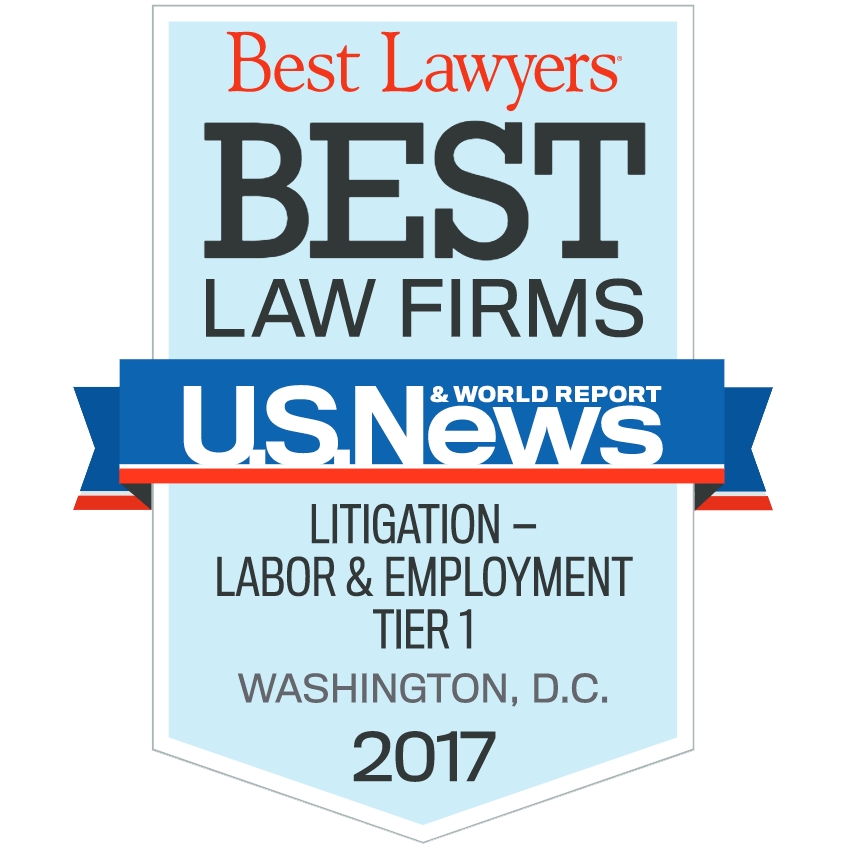
- See our column in Forbes: One Billion Reasons Why The SEC Whistleblower-Reward Program Is Effective.
- See our column in Going Concern: Sarbanes-Oxley 15 Years Later: Accountants Need to Speak Up Now More Than Ever.
- See our post in Accounting Today: Whistleblower Protections and Incentives for Auditors and Accountants.
- See our post in The Compliance and Ethics Blog: Shkreli Trial Reveals the Challenges Faced by Compliance Whistleblowers.
We have assembled a team of leading whistleblower lawyers to provide top-notch representation to Sarbanes-Oxley (SOX) whistleblowers. U.S. News and Best Lawyers® have named Zuckerman Law a Tier 1 Law Firm in the Washington D.C. metropolitan area.
- Matt Stock is a Certified Public Accountant, Certified Fraud Examiner and former KPMG external auditor. As an auditor, Stock developed expertise in financial statement analysis and internal controls testing and fraud recognition. He uses his auditing experience to help IRS, CFTC and SEC whistleblowers investigate and disclose complex financial frauds to the government and develop a roadmap for the SEC to take an enforcement action. Matt has been interviewed on CNBC, quoted extensively about whistleblower rewards in the media, and is the lead author of SEC Whistleblower Program: Tips from SEC Whistleblower Attorneys to Maximize an SEC Whistleblower Award.
- Dallas Hammer has extensive experience representing whistleblowers in retaliation and rewards claims and has written extensively about cybersecurity whistleblowing. He was selected by his peers to be included in The Best Lawyers in America® in the category of employment law in 2021 and 2022.
- Described by the National Law Journal as a “leading whistleblower attorney,” founding Principal Jason Zuckerman has established precedent under a wide range of whistleblower protection laws and obtained substantial compensation for his clients and recoveries for the government in whistleblower rewards and whistleblower retaliation cases. He served on the Department of Labor’s Whistleblower Protection Advisory Committee, which makes recommendations to the Secretary of Labor to improve OSHA’s administration of federal whistleblower protection laws. Zuckerman also served as Senior Legal Advisor to the Special Counsel at the U.S. Office of Special Counsel, the federal agency charged with protecting whistleblowers in the federal government. At OSC, he oversaw investigations of whistleblower claims and obtained corrective action or relief for whistleblowers.
- Zuckerman was recognized by Washingtonian magazine as a “Top Whistleblower Lawyer” (2020, 2018, 2017, 2015, 2009, and 2007), selected by his peers to be included in The Best Lawyers in America® in the category of employment law (2011-2021) and in SuperLawyers in the category of labor and employment law (2012 and 2015-2021), is rated 10 out of 10 by Avvo, based largely on client reviews, and is rated AV Preeminent® by Martindale-Hubbell based on peer reviews
- We have published extensively on whistleblower rights and protections, and speak nationwide at seminars and continuing legal education conferences. We blog about new developments under whistleblower retaliation and rewards laws at the Whistleblower Protection Law and SEC Awards Blog, and in 2019, the National Law Review awarded Zuckerman its “Go-To Thought Leadership Award” for his analysis of developments in whistleblower law.
- Our attorneys have been quoted by and published articles in leading business, accounting, and legal periodicals, including The Wall Street Journal, Forbes, CNBC, MarketWatch, Vox, Accounting Today, Going Concern, Law360 – Expert Analysis, Investopedia, The National Law Review, inSecurities, Government Accountability Project, S&P Global Market Intelligence, Risk & Compliance Magazine, The D&O Diary, The Compliance and Ethics Blog, Compliance Week and other printed and electronic media.
-
The “Definitive and Specific” Standard for Protected Activity
Less than four years after Congress enacted SOX, the ARB appointed by Secretary of Labor Elaine Chao significantly weakened Section 806 of SOX by imposing onerous burdens on whistleblowers that were contrary to the statute’s plain meaning and intent. In Platone v. FLYi, Inc., the ARB set forth the following requirements for SOX protected conduct:
- A SOX complainant’s disclosure must “definitively and specifically” relate to one of the six enumerated categories found in 18 U.S.C. § 1514A.
- The disclosure must “approximate . . . the basic elements” of the kind of fraud or violation alleged. For example, a disclosure about securities fraud must allege “a material misrepresentation (or omission), scienter, a connection with the purchase, or sale of a security, reliance, economic loss, and loss causation.”
Platone v. FLYi, Inc., ARB Case No. 04-154, 2006 WL 3246910 (ARB Sept. 29, 2006).
Under Platone, SOX whistleblower protection was limited almost only to employees who were familiar with the intricacies of federal securities law. Many cases were dismissed on summary judgment based on the failure to meet the onerous Platone standard.
And to compound Platone, some federal courts imposed an unduly high standard of objective reasonableness. For example, a Fifth Circuit decision concluded that an internal complaint about a company’s overstating gross profits in violation of SEC Staff Accounting Bulletin 101 did not qualify as protected conduct because the company’s financial reports had not yet been filed with the SEC. See Allen v. Admin. Review Bd., 514 F.3d 468, 476 (5th Cir. 2008). The apparent logic of Allen is that the whistleblower should wait until shareholders have been defrauded before making an internal complaint. That reasoning, however, is contrary to the prophylactic purpose of Section 806.
Relying on the Chevron doctrine, many federal courts deferred to the ARB’s interpretation and adopted the “definitively and specifically” standard for protected activity under SOX. E.g., Welch v. Chao, 536 F.3d 269, 276 n.2 (4th Cir. 2008).
-
The ARB Changes Course and Broadly Expands Protections Under SOX
Despite its initially narrow construction of the scope of protected conduct under SOX, the ARB began issuing decisions that slowly chipped away at the “definitively and specifically” standard. In May of 2011, the ARB appointed by Secretary of Labor Hilda Solis issued a seminal decision in Sylvester v. Parexel, which expressly abrogated Platone and adopted the following broad construction of SOX protected conduct:
- SOX complainants need only show that they reasonably believed the conduct complained about violated a relevant law. Sylvester v. Parexel Int’l LLC, ARB Case No. 07-123, at 14 (ARB May 25, 2011).
- An employee need not wait until misconduct occurs to make a protected disclosure, so long as the employee “reasonably believes that the violation is likely to happen.” at 16.
- The reasonable belief standard does not require complainants to tell management or the authorities why their beliefs are reasonable. at 42.
- SOX complainants no longer need to show that their disclosures “definitively and specifically” relate to the relevant laws. at 41.
- SOX complainants do not need to establish criminal fraud. Requiring a complainant to allege, prove, or approximate the elements of fraud would be contrary to the purpose of the whistleblower protection provision. at 47.
Sylvester also held that the Platone standard was in conflict with “the plain language of the SOX whistleblower protection provision, which protects ‘all good faith and reasonable reporting of fraud.’” Id. at 14–15, 30 (quoting 148 Cong. Rec. S7418-01, S7420)
-
Federal Courts Are Adopting the ARB’s Broad Interpretation of SOX Protected Conduct
After the ARB issued Sylvester, the key battleground in SOX litigation in federal court became whether federal courts would continue deferring to the prior ARB’s Platone decision or would instead adopt the current ARB’s Sylvester decision. Five years later, we know the answer, and it is decisively positive for whistleblowers. In particular, the Second, Third, Sixth, and Eighth Circuits and several district courts have adopted the Sylvester standard of SOX protected conduct, and no federal court has rejected the reasoning in Sylvester. See Beacom v. Oracle America, Inc., No. 15-1729, 2016 WL 3144730, at 3 (8th Cir. June 6, 2016) (expressly adopting the Sylvester standard); Rhinehimer v. U.S. Bancorp Invs., Inc., 787 F.3d 797 (6th Cir. 2015); Nielsen v. AECOM Tech. Corp., 762 F.3d 214, 220–21 (2d Cir. 2014) (granting Skidmore deference to Sylvester); Wiest v. Lynch, 710 F.3d 121 (3d Cir. 2013) (according Chevron deference to Sylvester); Stewart v. Doral Fin. Corp., 997 F. Supp. 2d 129, 135–36 (D.P.R. 2014) (adopting the Sylvester standard); Leshinsky v. Telvent GIT, S.A., 942 F. Supp. 2d 432, 443 (S.D.N.Y. 2013).
Recently the Sixth Circuit issued an opinion in Rhinehimer v. U.S. Bancorp Investments, Inc., adopting the Sylvester standard and affirming a jury verdict for a whistleblower who disclosed unsuitability fraud. Rhinehimer, 787 F.3d at 811–13. Rhinehimer agrees with the ARB’s observation in Sylvester “that an interpretation demanding a rigidly segmented factual showing justifying the employee’s suspicion [referring to Platone] undermines this purpose and conflicts with the statutory design, which turns on employees’ reasonable belief rather than requiring them to ultimately substantiate their allegations.” Id. at 810. In addition, Rhinehimer suggests that the issue of objective reasonableness is rarely amenable to summary disposition:
“[T]he issue of objective reasonableness should be decided as a matter of law only when no reasonable person could have believed that the facts [known to the employee] amounted to a violation” or otherwise justified the employee’s belief that illegal conduct was occurring. If, on the other hand, “reasonable minds could disagree about whether the employee’s belief was objectively reasonable, the issue cannot be decided as a matter of law.”
Id. at 811–12 (citations omitted).
At trial, the jury found that U.S. Bancorp Investments (“USBII”) disciplined and fired Michael Rhinehimer in retaliation for alerting one of his superiors to unsuitable trades a coworker made to the detriment of an elderly client. Rhinehimer’s manager expressly admitted that he gave Rhinehimer a written warning for opposing the unsuitable trades because Rhinehimer’s complaint “prompted a FINRA investigation . . . and anybody associated with this was really feeling the heat.” Id. at 804. In addition, the manager warned Rhinehimer that if he were to sue the bank, his career in the city would be over. The bank placed Rhinehimer on a performance improvement plan requiring him to increase his revenue to $40,000 per month. Shortly thereafter, the bank terminated his employment.
On appeal, USBII argued that, under Platone, Rhinehimer was required to establish facts from which a reasonable person could infer each of the elements of an unsuitability fraud claim, including the misrepresentation or omission of material facts and that the broker acted with intent or reckless disregard for the client’s needs. The Sixth Circuit held that the evidence was more than sufficient to sustain the jury’s finding that Rhinehimer reasonably believed that certain trades constituted unsuitability fraud. Id. at 812. And the court noted that the “employee’s reasonable belief is a simple factual question requiring no subset of findings that the employee had a justifiable belief as to each of the legally-defined elements of the suspected fraud.” Id. at 806.
Rhinehimer is an important development for corporate whistleblower rights and protections in that it restores the original intent of SOX whistleblower protection. A whistleblower’s reasonable belief is now assessed in a manner consistent with similar anti-retaliation statutes; i.e., the employee must subjectively believe that there is a violation, and the belief must be objectively reasonable. And as federal courts continue to adopt or defer to the ARB’s construction of SOX protected conduct as articulated in Sylvester, SOX whistleblowers are more likely to survive summary judgment.
This decision is part of a trend,[1] both at the DOL and in federal courts, of broadly construing SOX’s protection of whistleblowers and rejecting prior decisions that imposed a heightened standard of objective reasonableness.
In May 2016, the Fourth Circuit held that a SOX whistleblower can establish the reasonableness of his or her belief by proffering corroborating testimony from coworkers. See Deltek, Inc. v. Dep’t of Labor, Admin. Review Bd., No. 14-2415, 2016 WL 2946570 (4th Cir. May 20, 2016). Dinah Gunther began working for Deltek, Inc., as a financial analyst in 2008. Gunther, whose position was within Deltek’s IT department, lacked a college degree but had experience as an executive assistant and workflow manager. Soon after beginning work at Deltek, Gunther noticed a lack of clear procedure and documentation for Deltek’s billing disputes with Verizon Business (“Verizon”). She suspected Deltek employees were obscuring the IT department’s financial condition by subjecting Verizon to unfounded billing disputes, thereby concealing a shortfall in Deltek’s telecommunications budget. Gunther’s coworker, who was responsible for managing the billing relationship between Deltek and Verizon, agreed with her concern. Gunther reported the situation to her immediate supervisor, after which she faced hostility in the workplace. She then expressed her concerns of ongoing fraud in a letter to Deltek’s general counsel, which she copied to the SEC. Deltek’s general counsel met with Gunther and asked her to gather information about her concerns. Following their meeting, the general counsel investigated Gunther’s report and found no improper activity had occurred, but Gunther noticed her coworkers shredding documents.
After continuing to experience mistreatment at work, Gunther informed Deltek’s vice president of human resources that she was experiencing stress-related medical issues that were affecting her work. Gunther accepted Deltek’s offer of paid leave, conditioned on Gunther’s being able to return to work with 24 hours’ notice. Upon taking leave, Gunther filed a SOX complaint with the Occupational Safety and Health Administration (“OSHA”). Later, Gunther attempted to return to work on a Monday after having given notice of her return the prior Saturday. But a Deltek attorney and the vice president of human resources met her at the office to say she could not yet return to work, although they assured her she still had a job. The following day, Deltek fired Gunther for being confrontational and disruptive in that meeting.
OSHA concluded that there was no violation of SOX. Gunther appealed, and an administrative law judge (“ALJ”) held Deltek liable for retaliating against her. The ARB affirmed, and Deltek appealed. The Fourth Circuit determined that Gunther’s belief that Deltek was violating securities laws was reasonable. Id. at *7.
Deltek argued that Gunther’s belief was not objectively reasonable because she lacked the education and experience necessary to recognize securities fraud. The Fourth Circuit rejected this argument, stating that consideration of the “factual circumstances,” including information Gunther learned from coworkers, was warranted. See id. The Fourth Circuit agreed with the ALJ’s determination, which the ARB affirmed, that “in forming her belief Gunther reasonably relied on her close dealings with [her coworker], who did have extensive experience in Verizon invoicing . . . [and] who was himself a ‘credible, convincing witness at the hearing.’” Id. Therefore, Gunther’s belief was reasonable, and her activity was protected under SOX. Id.
[1] See, e.g., Wiggins v. ING U.S., Inc., No. 3:14-CV-01089-JCH, 2015 WL 8779559 (D. Conn. Dec. 15, 2015). In Wiggins, a U.S. district court in Connecticut held that the heightened Rule 9(b) pleading standard for fraud claims does not apply to SOX retaliation claims. Id. at *3. The court held, furthermore, that a whistleblower can plead that she had a reasonable belief that her employer violated one of Section 1514A’s enumerated fraud provisions without alleging specifically that she believed that the employer’s conduct satisfied all of the elements of the federal statute or SEC rule that allegedly was violated. See id. at *5–7. The court found that the plaintiff’s complaint sufficiently “tethered” her subjective belief to a violation of Section 1514A’s enumerated provisions, where the plaintiff was trained in federal securities laws and her complaint identified specific federal statutes and regulations, the responsibilities the employer had pursuant to those laws, and the specific actions that formed the basis of the plaintiff’s belief that the employer was breaching those responsibilities. Id.
ZUCKERMAN LAW
Summary
We are a Washington, DC-based law firm that represents whistleblowers in whistleblower rewards and whistleblower retaliation matters and litigates discrimination claims on behalf of employees in the District of Columbia, Maryland, and Virginia. The firm is dedicated to zealously advocating on behalf of our clients to achieve justice and accountability.
-
Professionalism
(5)
-
Honesty
(5)
-
Perseverance
(5)
Overall
User Review
( vote)






